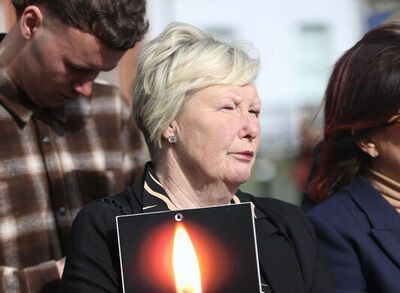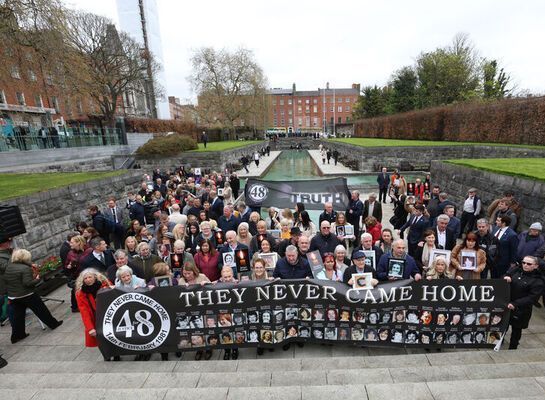The reports of the shoddy news reporting by Rupert Murdoch-run newspapers in England and Ireland and the regular violation of laws by reporters, is nothing new to those who have followed the Anglo-Irish conflict.
While malicious gossip and naked women are staples of the Sun, its real business is promoting the government of the day's agenda.
If that government was headed by Margaret Thatcher, this service was carried out with abandon without regard to facts or the rule of law.
Never was that more apparent then in the Sun's reporting on the death of three members of the Irish Republican Army on Gibraltar.
In 1988, in service to the Thatcher government of that time, the Sun published the government press handouts claiming a huge bomb was defused on Gibraltar, that there had been a gunfight, and that local police had shot the IRA terrorists.
A documentary later exposed this as lies: there was no bomb, no gunfight and, according to eyewitnesses, the two men and one woman were butchered while surrendering.
The Sun responded to the facts with more lies of British army confusion, of fictitious remote bomb triggers and, more importantly, of an eyewitness who would be smeared as an anti-British prostitute involved with drugs.
The headline in the Sun described the eyewitness, Carmen Proetta, as "The Tart of Gib." In 1995, the European Court of Human Rights ruled that the British government was guilty of "unlawful killing." Over £300,000 pounds were paid to Ms. Proetta in libel damages, this linked not just to stories in the Sun, but also in the Murdoch-owned Times.
Murdoch-owned papers are not alone in this abuse of power. The New York Times, owned by Winston Churchill's family at one point, was involved in a more nuanced case of doing the Thatcher government's bidding in Northern Ireland.
In 1985, the paper's London bureau chief, Jo Thomas, was advised that she was spending too much time investigating killings and collusion by security forces in Northern Ireland.
These were the same killings that John Stalker was to have been investigating until driven from that task by government-supplied smears and fabrications liberally promoted in the Sun and other British tabloids.
Instead, Thomas was told to work from Ministry of Defense background material.
This was the very same type of background material provided to the Sun in the Gibraltar story. Today, these killings remain as examples of British lawlessness. Ms. Thomas continued to probe and expose the contradictions of the government and was soon removed for "unexceptional reporting." She later wrote of this episode in the Columbia Review of Journalism.
Against such a backdrop it comes as a surprise that two distinguished journalists for the New York Times recently commented on the Murdoch scandal with an insufferable self-righteousness.
Bill Keller depicted the collateral damage of the News of the World actions as eroding the very freedoms of democracy while facilitating mocking derision by our dictatorial adversaries.
He failed to acknowledge the New York Times addiction to British Army press releases during the Northern Ireland conflict. John Burns, the current Times London bureau chief, interviewed Labor leader Ed Miliband over what he described as a wave of criminality in British newsrooms and Scotland Yard, and it being the "biggest scandal to hit Britain in 50 years."
It never occurred to Burns that part of that scandal was his paper's role, for not only what it did report in Northern Ireland but, more importantly, for what it did not. Apparently, Mr. Burns' test of what ranks as scandalous did not include Britain's actions in Northern Ireland down the years.
The phone-hacking scandal of the tabloids is but a tempest in a tea cup when compared to the corruption in England and Northern Ireland of law, justice, democracy and media. And not to forget the use of state-sponsored loyalist murderers to suppress the civil rights movement.
Mr. Miliband, for his part, spoke of a "deep moral malaise" and that [the Murdoch scandal] had "eroded the fabric of British society."
I guess a deep moral malaise isn't what it used to be.
But lest we forget, the British leader who presided over much of Northern Ireland's misery was Baroness Kesteven, aka Maggie Thatcher, who is considered by Mr. Murdoch, Prime Minister Cameron, the New York Times and the Wall Street Journal as the last example of British character and moral standard bearing. Yikes!
Michael J. Cummings is a national board member of the Irish American Unity Conference.










